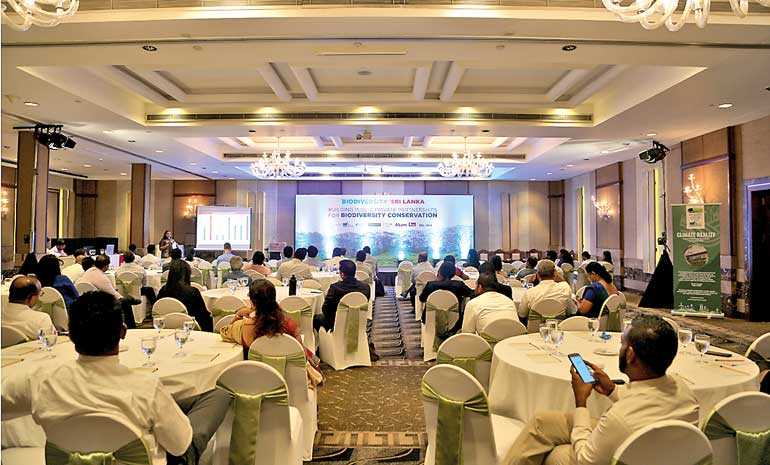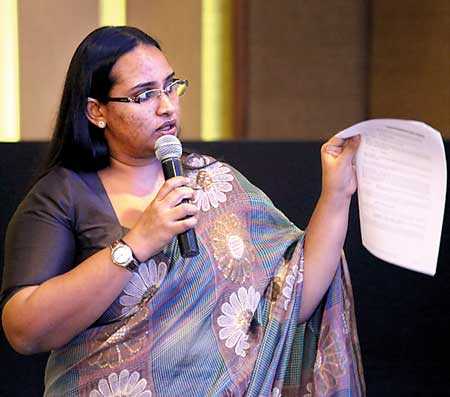Saturday Feb 21, 2026
Saturday Feb 21, 2026
Thursday, 11 October 2018 00:52 - - {{hitsCtrl.values.hits}}


Biodiversity Sri Lanka’s Annual Technical Sessions, which precede its AGM, were held at the Liberty Ballroom of the Ramada Colombo recently. At these sessions, member contributions to national conservation priorities were explored.
BSL member companies are engaged in biodiversity conservation and activities that have a direct and/or indirect impact on the conservation of Sri Lanka’s biodiversity. Membership of BSL represents over 75 companies across eight industry sectors; namely, agribusiness and food, banking and finance, engineering and construction, information and communications technology, manufacturing, service, tea plantations, and tourism and hospitality. 
The study revealed that unlike in the past, today, achieving environmental sustainability has become an integral part of a company’s business strategy. BSL member companies have initiated over 250 activities, including conservation projects, events and internal programs in relation to environmental sustainability during the period spanning from 2010 to 2018. The study classified these initiatives into 11 thematic areas: Ecosystem Conservation and Restoration; Reforestation and Greening; Waste Management; Water Management; Species Conservation; Education, Awareness and Publications; Marine and Coastal Conservation; Energy Conservation; Biodiversity/Carbon Footprint Assessments; Research and Certifications; and Other.
The highest number of initiatives were found in the Education, Awareness and Publications category, while Reforestation and Greening was recorded at second place. It was observed that there is a disparity in the geographical distribution of these initiatives, with Colombo recording close to 25% of them. Galle district, where 20% of these initiatives were recorded, ranked second place, whereas the Nuwara Eliya district stood at third place with just 9% of the initiatives. The districts of the Northern Province, namely, Vavuniya, Kilinochchi, Mullaitivu and Mannar, did not seem to be attractive enough as locations suitable for project implementation, despite the presence of ecologically important and unique ecosystems, including salt marshes, lagoons, estuaries, sand dunes and islands, within the Province.
The private sector’s sustainability initiatives carry relevance to multiple national and international commitments of the Government, such as the National Biodiversity Strategic Action Plan (NBSAP), the National Policy on Wetlands, the National Policy on Solid Waste Management, the Aichi Biodiversity Targets, the UN Sustainable Development Goals (SDG), and the commitments towards the Bonn Challenge.
Exposing areas that require more private sector investment, it was noted that the Sri Lankan private sector can contribute more to significantly achieve biodiversity-related targets set under the NBSAP, devised by the Biodiversity Secretariat of the Ministry of Mahaweli Development and Environment. BSL’s Online Project Bank and its Biodiversity Project Ranking Scheme are useful tools available to the members of BSL. These are available for the use of the sector in order to identify priority areas for investing in biodiversity and to maximise efficiency and effectiveness of the biodiversity-related investments which are currently operational.
